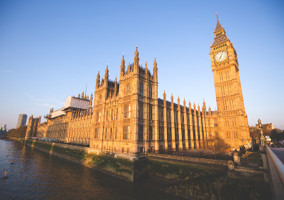No matter what the outcome of the election, charity is not likely to be high on the political agenda. Certainly not if the manifestos are anything to go by. Despite some quite radical ideas, the parties’ pledges of what they will do in power have little or no real vision for the charity sector.
Labour’s general plan of nationalising is one of borrowing and spending, but still lacks cohesion when it comes to charity policies. Its manifesto focuses on international aid, repealing the Lobbying Act and ending the contracting out of local services.
The Conservative manifesto commits to international development with a focus on tackling terrorism and climate change, and will be keeping the same model for local council service provision.
Meanwhile, the Liberal Democrats have pledged to give more power to local authorities and aim to reduce poverty internationally through foreign aid.
One thing they do have in common is the likelihood of increased borrowing. The extent of this depends on which party wins next week but much of the investment will go on infrastructure and health services, leaving a continued shortfall in other areas, such as child poverty and homelessness.
We are now well into the ninth year of Tory rule. If that continues, the trajectory of the charity sector under Johnson will not be dissimilar to that of his predecessors.
As cuts to local services have taken their toll, charities have had to plug the gaps and, in many cases, provide the same services that were once under public sector remits.
Although Brexit “being done” under the Tories may stop uncertainty about whether we actually are leaving the EU, uncertainty over what deals we will be able to secure is likely to drag on for years, if not decades.
So it seems regardless of who wins on 12 December, charities will have no clear champion in Number 10, which makes the fundraising profession all the more important.
Stephen Cotterill is editor of Fundraising Magazine
@stevejcotterill
|
Related items












